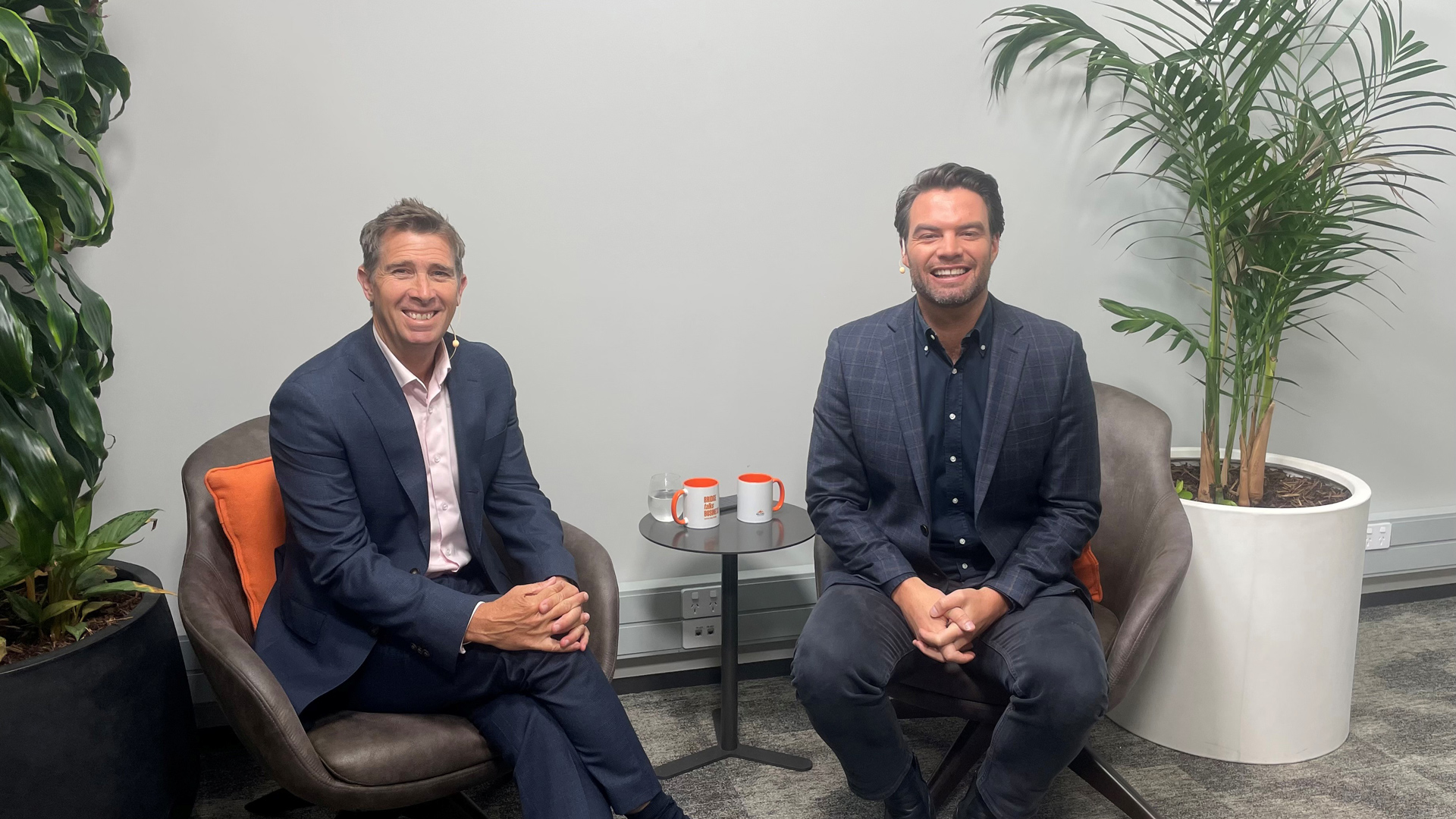The RBNZ cut the Official Cash Rate by 50 basis points last week, prompting markets to readjust interest rate expectations lower. What does this mean for mortgage rates, the housing market and New Zealand businesses? Milford Credit Analyst Remy Morgan talks to Ryan Bridge about the market reaction, and the factors that will determine a further cut at the RBNZ’s November meeting.
Listen.
Click here to download the MP3 file or listen to the podcast on your favourite platform:
Read.
Bridge talks Business: 14 October 2025
Episode Transcript
Ryan Bridge
Kia ora and welcome to Episode 52 of Bridge talks Business with Milford. Great to have your company. The big question this week is how low will they go? Interest rates are falling. We’ve got a double whammy hit from the Reserve Bank for October. And next month we’ve got another meeting. What are the markets telling us about the chances of a further cut, maybe 25 points? What data should we be watching between now and then that will inform the decision. We’ll look at that on the show today. But first here’s your top five business bits.
1. Tariffs are back. Trump has announced a further 100% on China effective 1 November. It’s all over rare earth minerals again. Unsurprisingly the rhetoric was toned down over the weekend, but the announcement certainly took investors by surprise.
2. Stock markets took a hit after this. The worst single-day performance since April for them. Crypto took a bloodbath. Gold managed to rally as investors continued to seek alternatives to regular currencies.
3. The Reserve Bank overdelivered with that half point cut to the OCR. More stimulus and looking through inflation, bonds continued their rally. The Kiwi dollar continued to fall.
4. French politics continues to confuse everyone. Recently resigned Prime Minister Lecornu was reinstated as prime minister just four days later, but the situation remains a mess. French bonds continue to be discounted compared to their German equivalents.
5. We look forward to company earnings reports for quarter three, starting with the big US banks. Investors will likely remain a bit on edge post Friday’s volatility and will be on heightened alert for any news to do with China trade.
Alright. Without any further ado. Time is money. Money is time. And I’m not going to waste any more of yours. We want to talk about the OCR. Everybody’s interested in what’s happening, particularly at the next meeting. So we’ve got Credit Analyst for Milford Remy Morgan on the programme. Just a reminder, this segment is informational only and should not be considered financial advice.
Remy, welcome to the podcast.
Remy Morgan
Great to be here. Thanks, Ryan.
Ryan Bridge
Lovely to have you. And lovely to meet you as well. Let’s talk OCR. Let’s skip ahead to November’s meeting. What are we expecting? What are markets expecting?
Remy Morgan
Yeah. So right now the markets are fully expecting a full 25 basis point cut to bring that OCR down to 2.25%.
Ryan Bridge
Great. Because we’ve just had a double whammy. So to have a little bit more would be nice. Assuming they’re right, what data, what information are we going to get before then that will inform that decision.
Remy Morgan
So next week we will get the CPI print which is a measure of inflation. So that will be one that both the RBNZ and the market are closely watching. We’ll also get the unemployment rate in a few weeks time, and a few other key data points in between will be indicators of consumer and business confidence. And that will also be something that will be closely watched.
Ryan Bridge
Because now they’re weighing up that whole question of inflation’s getting up there. It’s kind of getting close to the band maybe even over it, versus we need to boost the economy a bit. That’s like the balancing act they’ve got, right?
Remy Morgan
Yeah that’s exactly right. So there are some expectations that we could be touching that 3% inflation. But from there it is expected to tick down. So it really is about the unemployment, the confidence, and making sure that we get things going again and reducing that output gap.
Ryan Bridge
What type of announcement? Because I know that sometimes you get just a statement with the number. Sometimes you get a full press conference. What is this one?
Remy Morgan
Yes. So last week it was just the statement. There was no press release. In November, we will get the full works. So we will see the RBNZ’s revised economic projections, we’ll see the OCR track, which is essentially what the RBNZ are expecting for the OCR going forward. And there will be the press release. So that’ll give a lot of colour, going into the summer period before the next meeting in February.
Ryan Bridge
Did markets get the last one right? What were they expecting for the October announcement?
Remy Morgan
So for the October announcement, the market and even the economists were really on the fence – whether it would be a 25 basis point cut or a 50 basis point cut. We saw about 34 basis points priced in. So that suggests definitely 25 was the expectation. But the 50 was really on the fence. And that had really come about as a result of that weak second quarter GDP print, which threw a bit of a spanner in the works.
Ryan Bridge
It was a pretty violent jolt, I think is how I’d describe it. What did the markets make of that quarter two number? You know, because you would think when you see something that bad that they would all drop back and fall back, did they?
Remy Morgan
Yeah. So a few things happened. So, after that weak second quarter GDP print, we saw the market participants starting to reprice interest rate expectations. So that was the point where we started to see maybe there will be a 50 basis point cut in October, whereas before the market was pretty solid 25 basis points in the October meeting.
And those, expectations of future interest rate cuts actually helped to boost the New Zealand share market. So we actually saw a bit of a rally. We saw the NZX reaching new record highs after four years. And that was really an expectation of potentially low interest rates to come.
Ryan Bridge
Because it’s kind of counter-intuitive. When you get bad news, you think everything’s going to fall with it. But they are anticipating, because of the bad news, that we will have rate cuts. Therefore we will have more spending. Therefore these companies will do more business.
Remy Morgan
That’s exactly right. It’s all about future expectations and where we’re going to from here.
Ryan Bridge
What about the data? You’ve mentioned some unemployment, inflation that we will get before the meeting. We’ve just had the services sector update. Yes, it’s a bit better, but still contracting. Same with manufacturing. When are these things going to turn around Remy?
Remy Morgan
It’s a really good question. We are all asking the same thing. I think a lot of the problem has been everyone is sitting on the sidelines waiting for these lower interest rates to come, and it feels like there’s been a lot of uncertainty offshore. You know, we’ve had Trump, we’ve had tariffs. People were a little bit nervous. We also still have a lot of people who haven’t quite yet rolled off of those higher fixed mortgage rates onto these new lower ones. So it will take a little bit of time for these lower rates to transmit through the economy and for us to get that intended effect.
Ryan Bridge
Do you think some people are almost putting off buying a new couch or a new car because they’re waiting for the rates to go even lower before they do it?
Remy Morgan
Yeah, I think there’s some of that going on and potentially waiting until we’re at or near the bottom before they really hit go on refixing at those lower rates.
Ryan Bridge
The time is now for the new sofa, by the way. All right. So what does all this mean for house prices, which we had some new numbers on in the last week. For businesses who are borrowing – this is the coalface of the OCR. What’s going on here?
Remy Morgan
If we think about the housing market, like we mentioned before, people have perhaps not really had the confidence – rates have been high. So now that we’re seeing some lower mortgage rates, we might see some potential buyers coming back into the market, some investors coming back, we might see a bit more disposable income in the consumer pocket, which might see them going out and spending.
We would see lower interest rates offered on savings accounts, which again might incentivise people to spend rather than save. And so all of this might give the economy a boost, might increase demand for housing, which might help to boost prices, increased demand for goods and services. And once businesses start to see that, that might give them the confidence to start hitting go on investment again.
Ryan Bridge
What about Kiwi dollar? The OCR and interest rates have an impact on that because it’s about demand for our dollar. It’s very weak at the moment. Do you expect that will continue?
Remy Morgan
So after the OCR announcement last week, we did see quite a significant drop in the New Zealand dollar against the US dollar. But it isn’t just the OCR – that’s one factor. We have seen it bouncing around a bit the last few days, particularly on this news with Trump and China and tariffs. So I think it will be volatile. But it is pretty weak at the moment.
Ryan Bridge
So on the whole, for those who have got mortgages, for those who’ve got businesses, for those who’ve got investments just generally – we’ve had a double whammy cut. We should get another one by Christmas. And now’s the time to kick start things again.
Remy Morgan
I’d hope to see that. It would be great to see things moving in the right direction. Like I said before, there’s a long hiatus between the next RBNZ meeting, so the market will be closely watching what the RBNZ does in November and what the commentary is, and that will really set the tone for the summer period.
Ryan Bridge
Excellent. Remy lovely to have you on the podcast.
Remy Morgan
Great to be here. Thanks, Ryan.
Ryan Bridge
That was Remy Morgan, a Credit Analyst at Milford, talking about the OCR. Both the double cut we’ve had and hopefully the cut that we will have come November’s meeting. Don’t forget you can like, follow and subscribe this podcast wherever you like to listen, and share it with your friends. Until next week. Don’t forget, invest in yourselves.
Missed previous episode? Don’t worry! Click here to catch up now.


